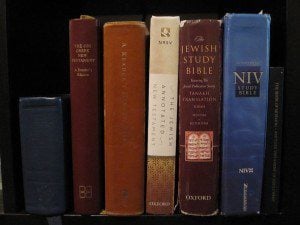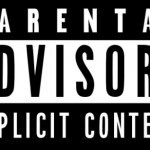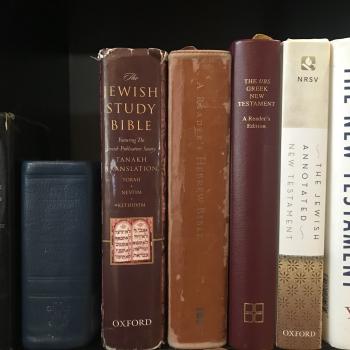
It’s that time of year when sales happen, Christmas money appears in your stocking, and January is coming and bringing changes. Of course, we’ll start studying the New Testament, but our Church-oriented Gospel Doctrine experience will happen half as often with the new 2-hour schedule.
“For years Church leaders have been emphasizing that home is the best place to live, learn, and teach the gospel, and gospel learning and teaching should be part of our daily lives, not confined to Sunday classes.”- Source
As I’ve said elsewhere, I believe you cannot fully learn from scripture unless you are also actively learning about scripture. The first is the act of a disciple and the second that of a scholar. This is the first of several posts recommending resources and ideas about study and learning at home, as individuals, families, and informal groups. I’ll be linking to past posts as well, like this one on using multiple Bible translations in family/group study, and this one on a basic approach to scripture study.
You’ll note that these books are a mix of LDS and non-LDS; while there are some unique LDS positions that require LDS exposition, there is so much LDS can learn from those who have devoted their lives to studying scripture professionally and personally. We lose out when we think that the injunction to seek out “the best books” excludes non-LDS authors. However, I also recognize that many feel overwhelmed and don’t know where to begin, which is why I provide these lists.
I’ve starred the books available in Logos format; that’s a free reader (you can pay for more functionality) wherein all the verses and many other things are hyperlinked to each other, and scrollable in sync. I find it extremely useful, and buy everything I can in Logos now.
Top Five Intro Books
If this is the first year you want understanding beyond the KJV, Church magazines, and manuals, this is the list for you.
- *New Revised Standard Version (NRSV) or HarperCollins Study Bible
- No human book, technique, or tip will help you understand and love the New Testament more than a recent translation, and there’s absolutely nothing wrong with reading one for personal study. Other translations have, for example, been cited in The Ensign and General Conference. Look for an upcoming post about understanding the origins of the Bible, translation, and LDS use of the KJV.
- The NRSV is a revised descendant of the King James Version, itself a revision of earlier English translations. This translation exists in many editions: hardcover, softback, large print, without or with various historical notes, and Study Bible form. The Harper-Collins is one of these Study Bible editions, providing extensive essays, notes, charts, maps, etc. This edition is often used in college classrooms.
- Jesus Christ and the World of the New Testament
- A fantastic introduction to the language, culture, geography, history, texts, and conflicts in the New Testament world from three LDS scholars. A large-format book with lots of pictures, so it could be used with children who need more than text. It’s also a light introduction to scholarship on the NT.
- James Faulconer, The New Testament Made Harder
- A BYU philosophy professor, Faulconer provides a bit of commentary and background but more importantly, hundreds of excellent thought questions to consider while reading and studying.
- *N.T. Wright New Testament for Everyone OR *NIV Application Commentary (currently available for $4.99 each in Kindle)
- Commentaries provide more depth than Study Bibles. Wright’s is a very light and readable commentary, with devotional and applicational focus. The NIVAC is Evangelical, longer, and slightly more technical. It has explicit sections called Original Meaning, Bridging Contexts, and Contemporary Significance, something I think fits LDS expectations a good bit.
- Caveat with every series: the quality will vary from author to author, and typically reflect the author’s or publisher’s theological views. This might be more problematic when, say, we get to Paul’s letters, where I would not want the traditional Lutheran view of grace, works, and faith presented. (See my notes here, also due for an update.)
- I’ve provided samples of both series, here in one PDF file.
- *Misreading Scripture with Western Eyes: Removing Cultural Blinders to Better Understand the Bible
- So much of the New Testament is culture-specific information about a culture we don’t inhabit, don’t know, and often don’t understand when it’s presented to us. This is a fantastic and easy read about how becoming aware of our own cultural assumptions can help us better understand scripture. I’ve used it a good bit. Highly recommended.
Top Five “Medium” Books
If you’ve got some familiarity with the things above, try these. #4-5 are more in the “tool” category.
- David Bentley Hart, The New Testament: A Translation or Jewish Annotated New Testament
- All single-translator Bibles are idiosyncratic by nature. Hart’s recent translation is fresh and invigorating; we read it in my History of Christianity class.
- Whereas Hart is an Eastern Orthodox christian, the Jewish Annotated New Testament comes from the same scholars who produced the Jewish Study Bible; it’s a New Testament study Bible from a Jewish perspective, using the NRSV text. That means a lot of interesting background, but it also means you shouldn’t be surprised when the Jewish authors don’t assert the resurrection of the divine son of God, for example.
- *Raymond Brown, Introduction to the New Testament
- Brown is another favorite author, a Catholic priest and NT scholar. This goes through the NT book by book, and is quite long. If you take it in chunks, to accommodate our reading schedule, it’s quite doable. Otherwise, there is an abridged version.
- Jodi Magness, Stone and Dung, Oil and Spit: Jewish Daily Life in the Time of Jesus
- Jesus obviously didn’t wake up to his alarm, check his texts, and then drive to his carpentry shop. So what was daily life like, how did it differ, and why does it matter?
- *Carson/Beale, Commentary on the New Testament Use of the Old Testament
- The NT quotes the OT extensively, though this is not always evident from our KJV. The NT often reads differently, or puts the passage to a different usage, or transforms it somehow. This is a verse-by-verse examination of every such citation.
- *Comfort, New Testament Text and Translation Commentary
- If you’re really interested in the why your KJV, your NRSV, and ESV/NIV/other versions differ, this book explains it by chapter and verse. Often it’s because they have chosen different Greek manuscripts or variants as their base text.
A few other things:
- Free- Footnotes to the New Testament for Latter-day Saints
- This was going to be published, but was then just released into the wild instead. It’s like an LDS Study Bible on the KJV, although many of the notes are unnecessary if you’re using a modern translation.
- The BYU New Testament Commentary series
- This is the first real LDS New Testament commentary, and as with any first-time effort, there are growing pains.
- Julie Smith’s BYUNTC volume on Mark is due out any time, and I’d highly recommend it. I’ve read the whole thing during an early stage of the editorial process. It’s not up yet anywhere for preorder, but keep checking Amazon.
- Julie’s work is available in various places and formats, including formal publications, podcasts, Education Week, and blogs.
- BYU prof Thomas Wayment’s (Religion and Classics) NT translation and study Bible is coming soon. I haven’t seen this myself, but heard good things from others. Check out a podcast on it here.
- Also, ’tis the season. I must plug BYU prof Eric Huntsman’s book on Advent and Christmas. This has some history and background, but also a personal, practical, devotional guide to getting Christ back in Christmas with busy families, Christmas materialism, etc. It also includes an appendix on Christmas with autism, again emphasizing the personal and practical.
- Not strictly NT related, but I am really looking forward to the publication of the Maxwell Institute Study Edition of the Book of Mormon. A sample page is available here, along with more information.
As always, you can help me pay my tuition here, or you can support my work through making your regular Amazon purchases through the Amazon links I post. You can also get updates by email whenever a post goes up (subscription box on the right). You can also follow Benjamin the Scribe on Facebook.











